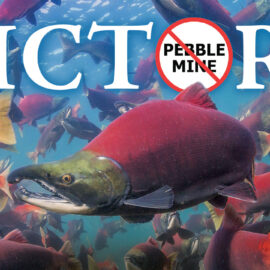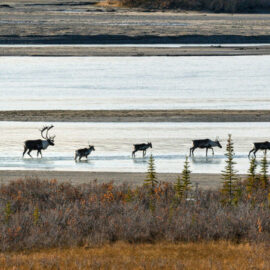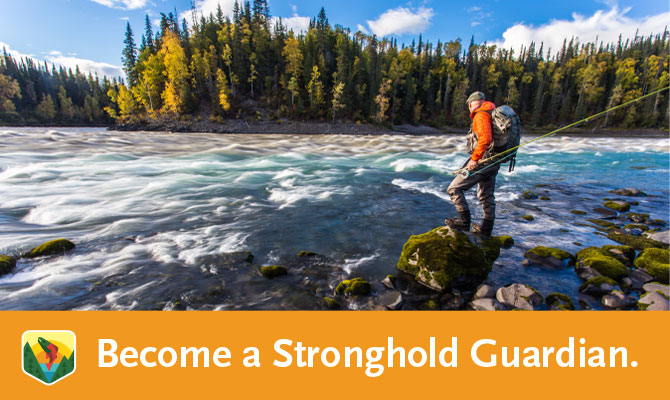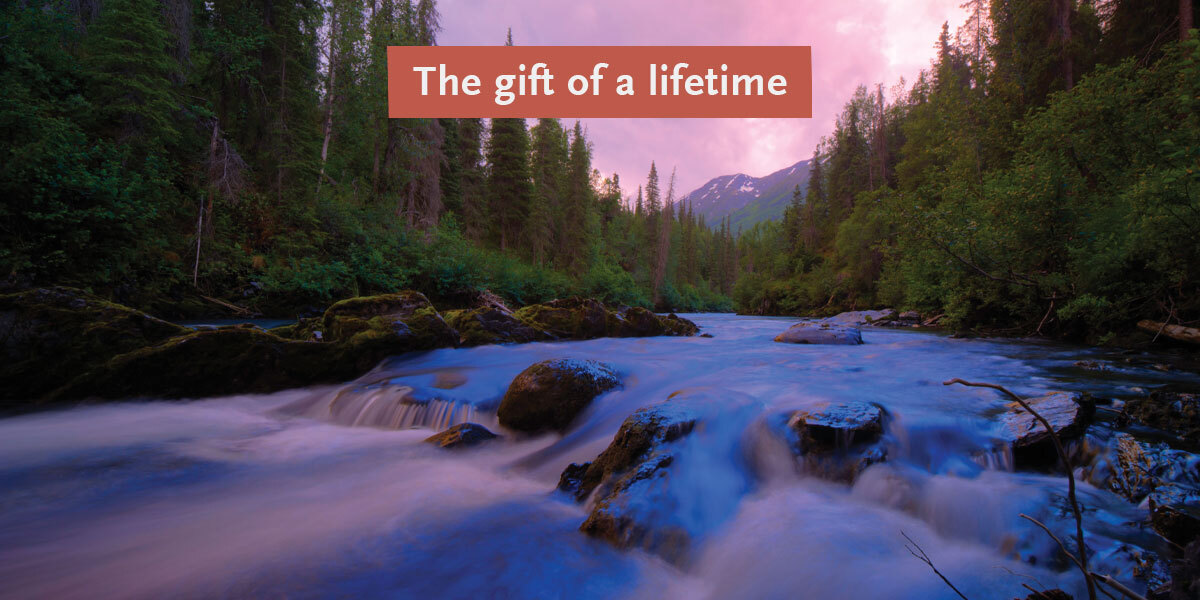A beautiful May day in the Rose Garden. An even brighter future for Bristol Bay.
It doesn’t get more official than marking the defeat of Pebble Mine in the White House Rose Garden.
On May 11, 2023, President Joe Biden hosted Alaska Native Tribal leaders from Bristol Bay, along with conservation groups, commercial fishermen, and other advocates, to celebrate a future for the world’s greatest sockeye fishery safe from the threat of this toxic open pit mine.
The White House celebration came two-and-half months after Clean Water Act protections finalized by the U.S. Environmental Protection Agency effectively ended the threat of the mine.
“If we had lost Bristol Bay—and Pebble Mine was a very real threat—wild Pacific salmon would have taken a definitive turn for the worse,” says Wild Salmon Center President & CEO Guido Rahr. “Instead, we were able to thank EPA and President Biden in person for stepping up to protect the headwaters of this American treasure.”
Rahr was accompanied at the White House event by WSC VP of Development & Communications David Finkel and Alaska Program Director Emily Anderson, along with many members of our coalition to defend Bristol Bay.
Alannah Hurley, Executive Director of the United Tribes of Bristol Bay—a key member of our Bristol Bay Defense Fund coalition—joined President Biden at the podium to thank his administration for its leadership in conserving Bristol Bay and its globally important wild salmon ecosystem.
Bristol Bay’s 2022 sockeye run shattered all previous records, with roughly 80 million returning salmon. This abundance, which supplies as much as 57 percent of the world’s sockeye salmon catch, is nurtured by the vigorous health of this vast and largely roadless watershed.
In turn, Bristol Bay supports a $2.2 billion-a-year salmon fishing economy, jobs for more than 15,000 people every year, and subsistence salmon fishing for 31 federally recognized Alaska Native Tribes.
“If we had lost Bristol Bay—and Pebble Mine was a very real threat—wild salmon would have taken a definitive turn for the worse. Instead, we were able to thank EPA and President Biden in person for stepping up to protect this American treasure.”
Wild Salmon Center President & CEO Guido Rahr
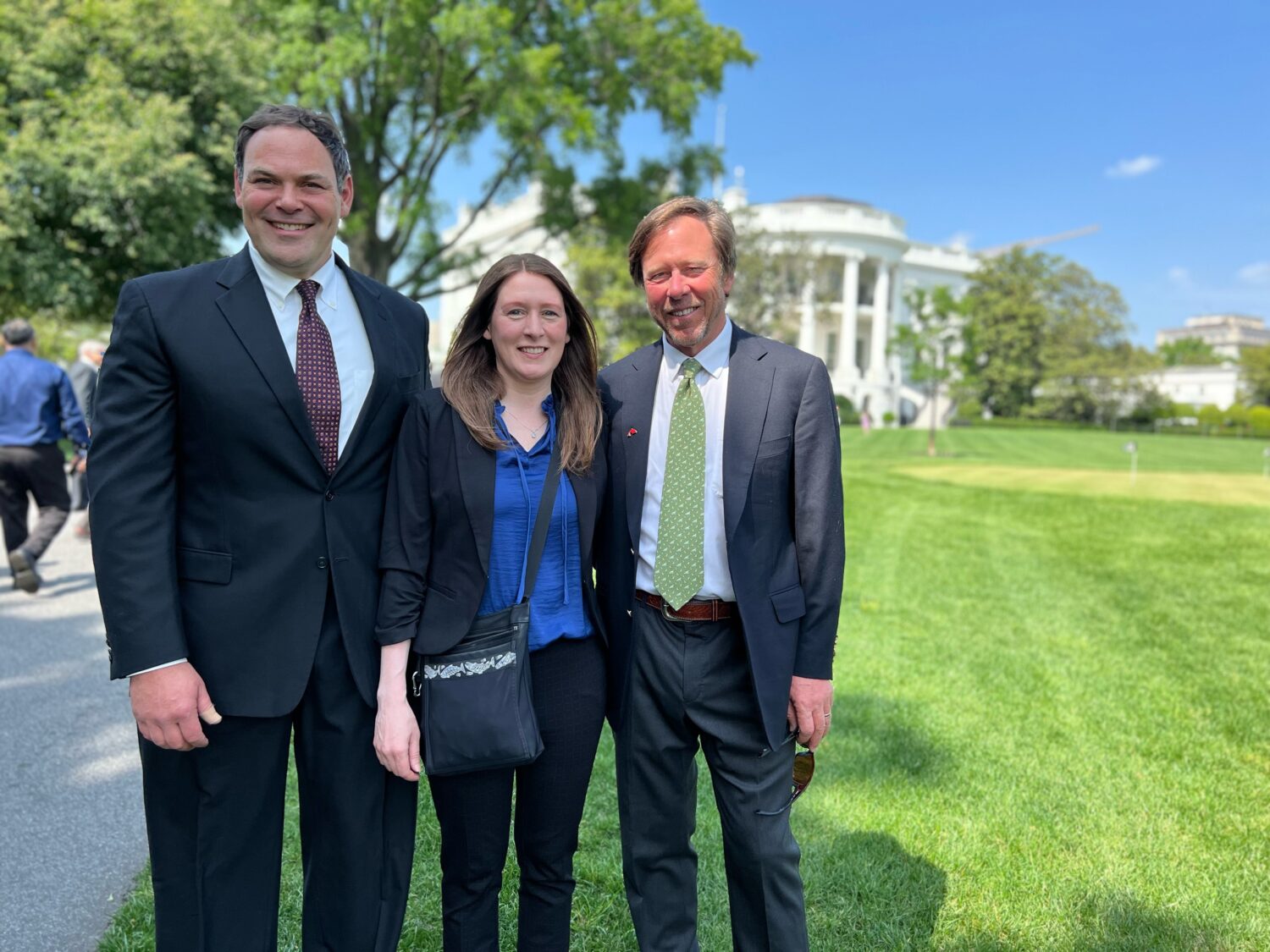
“Bristol Bay is an extraordinary place unlike anywhere in the world,” President Biden told those gathered in the Rose Garden. “Six rivers meet there, traveling through 40,000 miles of tundra, wetlands, and lakes, collecting freshwater and sediment along the way from some of the most pristine land on the entire planet. And that’s not hyperbole.”
Bristol Bay was the centerpiece of Thursday’s event, which focused on the Biden Administration’s land and water conservation accomplishments to date.
This winter’s Clean Water Act veto brought an end to Pebble Mine’s two-decade-long quest to build a toxic open pit mine on top of the world’s greatest wild sockeye salmon nursery. For just as long, Alaska Native Tribes, fishers, and groups like Wild Salmon Center fought back. Millions of people across the world spoke up. And in January 2023, we won.
“For many of you, this has been the fight of your lifetime,” President Biden acknowledged. “I’m sure along the way you were told this mine was inevitable, that you should just accept it, that you should give up. But you didn’t.”
“For many of you, this has been the fight of your lifetime,. I’m sure along the way you were told this mine was inevitable, that you should just accept it, that you should give up. But you didn’t.”
President Joe Biden
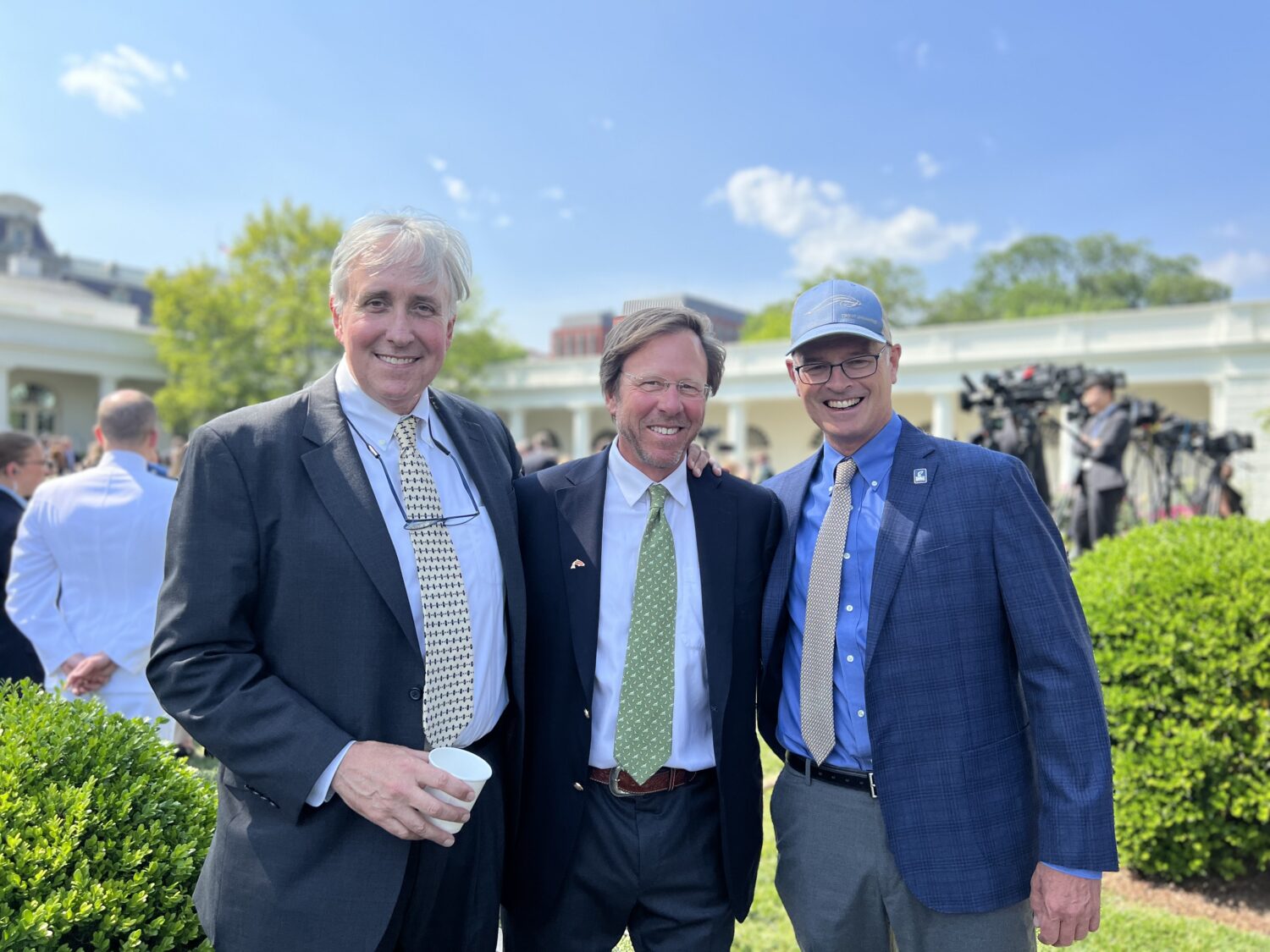
Hurley made her own remarks before introducing the President.
“This is everything our people have been fighting for: To make sure that our children will know who they are, and will be able to continue to be Native people in Bristol Bay for generations to come,” Hurley said.
Nobody could have said it better, in expressing how much the Pebble Mine put at risk for the communities that live in this extraordinary place.
“This is everything our people have been fighting for: To make sure that our children will know who they are, and will be able to continue to be Native people in Bristol Bay for generations to come,” Hurley said.
Alannah Hurley, Executive Director of the United Tribes of Bristol Bay
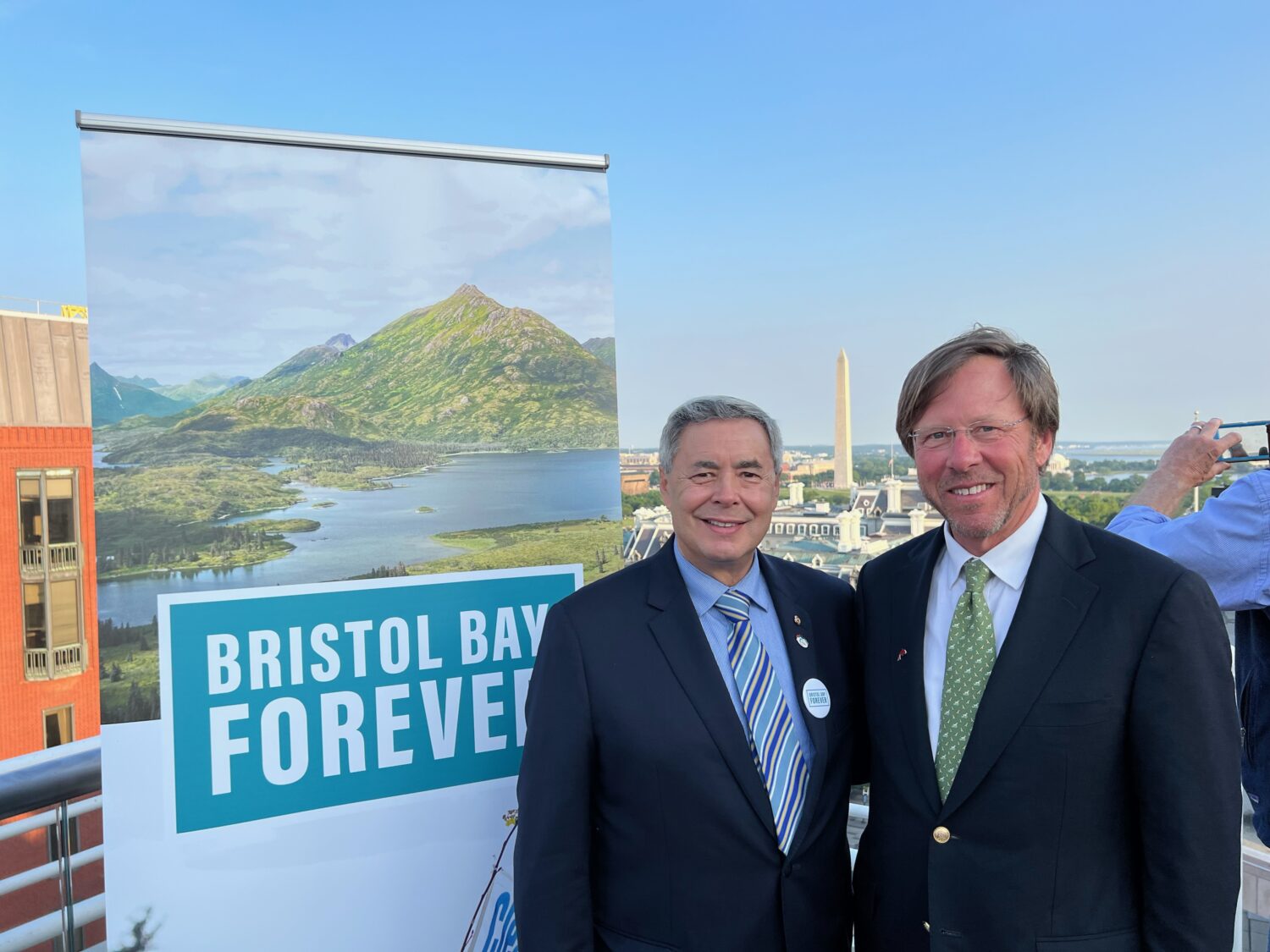
Hurley also stressed that while Pebble Mine is now officially dead, we have more work ahead of us to make sure that Bristol Bay is permanently safe from other mines and harmful developments.
“Even as we celebrate, we know our work is not yet done,” says Anderson, WSC’s Alaska Program Director. “Whatever comes next, we’ll be right here with Bristol Bay residents every step of the way. Because this special place should never again have to face such an existential threat.”
“Whatever comes next, we’ll be right here with Bristol Bay residents every step of the way. Because this special place should never again have to face such an existential threat.”
WSC Alaska Program Director Emily Anderson

